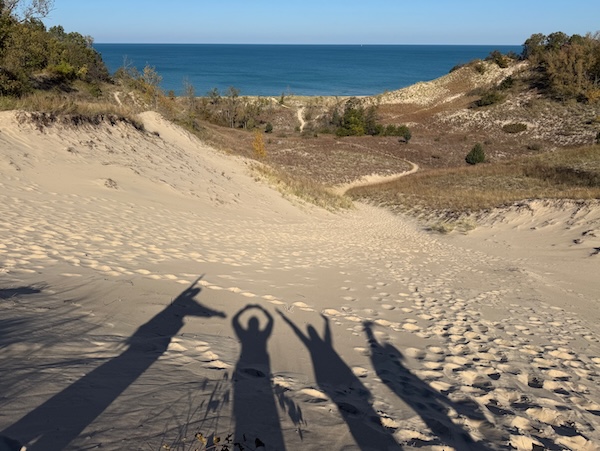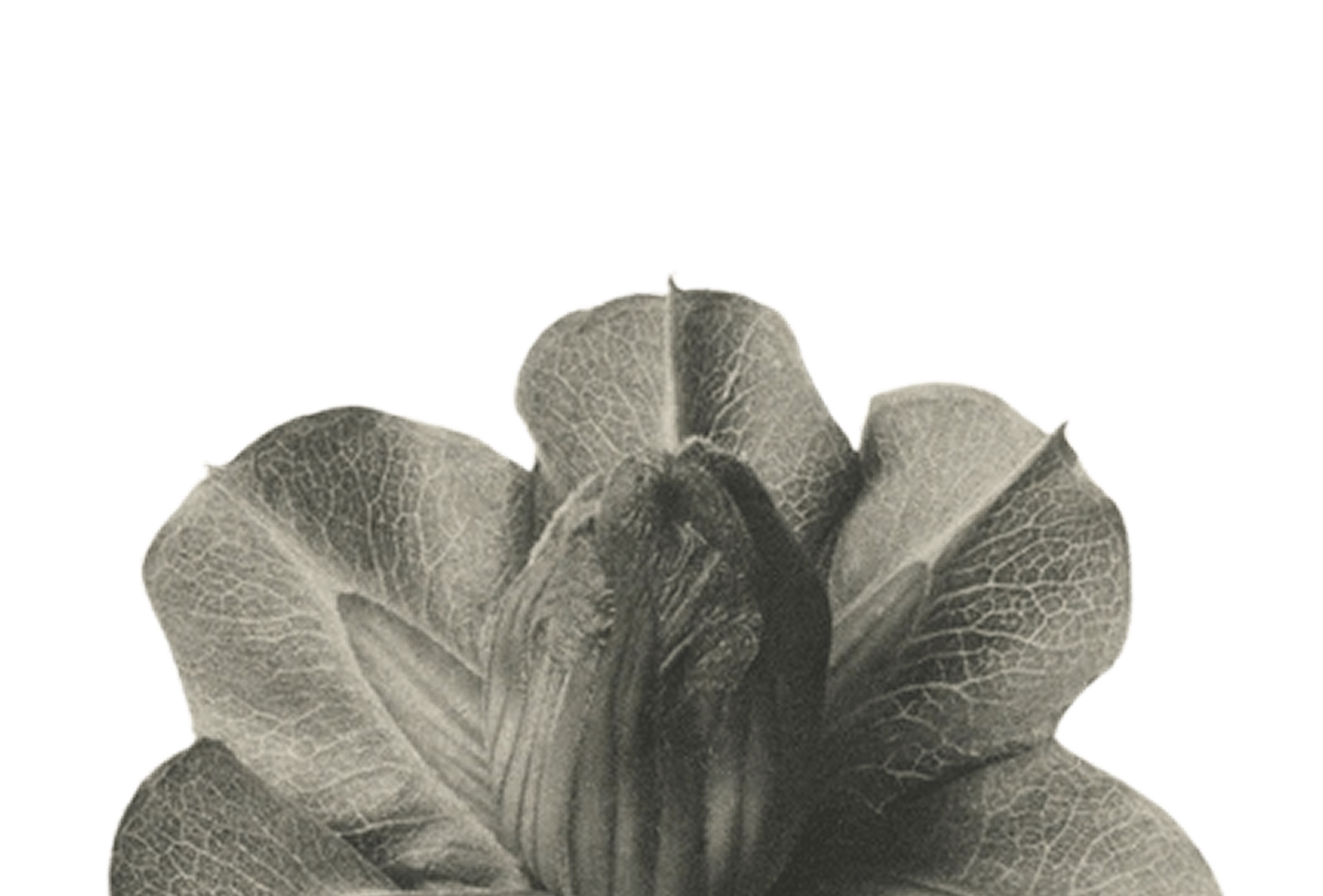
Dear friends,
I almost didn’t go to the concert. Even though Jacob Collier has been called a modern-day Mozart. Even though he would be playing with virtuosic mandolinist Chris Thile. Even though they’d be performing with our local symphony under the direction of Suzie Collier, Jacob’s mother. Still, I waffled.
Earlier this year, beloved Roots & Refuge sangha member Judy Nakatomi wrote a letter that weaves Thích Nhất Hạnh’s book In Love and Trust: Letters from a Zen Master with Jacob Collier’s song “Little Blue” in a message for all of us “dear memory keepers, storytellers, poets and dreamers.”
How easy it is to let recommendations by algorithm outweigh recommendations by relationship. To let virtual reality supplant the physical, embodied world. I could play Jacob Collier and Chris Thile on my phone, or listen to them live with three thousand other people in Hill Auditorium, a ten-minute walk from home.
I got the tickets.
“Little Blue” was part of the evening’s genre-defying program, along with violin concertos (without solo violin!) by Bach and Barber, songs by The Beatles and Queen, and two “Super Secret Surprises.” The program was 95% improvised. Suzie Collier conducted the Ann Arbor Symphony and Jacob Collier conducted us, transforming three thousand listeners into a massive choral ensemble. The concert was an exuberant embodiment of 一期一會 ichi-go ichi-e, an expression that originates from 茶道 sadō/chadō (Japanese tea ceremony) and serves as a poignant reminder of how this assemblage of people, this series of actions, this very moment are all utterly unrepeatable.
“I’m not in the business of telling people how to feel, I’m in the business of feeling,” Jacob explained to a packed Michigan Theater the night before the concert. His interactive talk far exceeded the allotted ninety minutes, illustrating a point he’d made in response to a question about AI: No creative person would ever be 100% obedient. (Excellent advice for both cultivating creativity and confronting fascism.)
Collier’s initial reaction to AI mirrored his relationship to music: How can I play with this? How can I break it? Jacob spoke of his love for dissonance: How much tension can I bear? How can I find a way out of it? Integrate what disgusts me? Alchemize anger into something else—joy, even—and then range back into discomfort again? It was a master class in traversing broad swathes of musical and life experience with the insatiable curiosity of an artist and the unwavering care of a chaplain.
Spontaneity in action: Jacob asked to borrow a cell phone, which materialized on the outstretched arm of a befuddled man from backstage. Jacob recorded a snippet of himself Tuvan throat singing on the stage manager’s phone, then beamed the file to his laptop, which was hooked up to the projector onstage. He ran the audio clip through a spectral analyzer on his computer, which rendered the recording’s audio frequencies into visual form. While the music majors in the audience geeked out over the overtone series and natural harmonies, the rest of us marveled to see the way a single musical note contains so many other notes. Indeed, infinite other notes. (How very Indra’s Net 🕸️💎)
Mapping webs of connection: This theme followed me to Chicago, where I represented Listening to the Buddhist in Our Backyard at a convening on Mapping Spiritual Innovation. We were a roomful of people connected to newly formed, collaborative, place-based initiatives rooted in Christianity, humanism, Islam, Judaism, and other traditions—a microcosm of a broader ecosystem still in the making. After this lively and generative gathering, I stayed a few extra days with two dear friends, community-builders and refuge-weavers extraordinaire. Much like the Jacob Collier and Chris Thile concert, those days were a continuous astonishment: hiking through dunes and forest and marsh at Indiana Dunes State Park (where the photo at the top of today’s letter was taken), savoring multiple bowls of slow-simmered ash reshteh, absorbing the transcendent strains of Qawwali Sufi music. Joys all the more treasured in light of my friends’ ongoing efforts to alleviate the immense suffering wrought upon their beloveds by the violence of ICE, prisons, the Gaza war.
After the four-hour train ride back to Ann Arbor, I leafed through my copy of A Portrait of the Self as Nation, having spotted a poem of Marilyn Chin’s in the issue of Poetry magazine gifted to us by the Mapping Spiritual Innovation organizers (the magazine was founded in Chicago in 1912). Here is the last stanza of “Blues on Yellow,” by a self-professed “activist-subversive-radical-immigrant-feminist-transnational-Buddhist-neoclassic-nerd-poet”:
I am so mellow yellow, mellow yellow, Buddha sings in my veins.
I am so mellow yellow, mellow yellow, Buddha sings in my veins.
O take me to the land of the unreborn, there’s no life on earth without pain.
At Hill Auditorium, Chris Thile and Jacob Collier played two songs from The Phosphorescent Blues, a 2015 album by Thile’s band Punch Brothers that has only aged into greater relevance a decade later. The songs’ refrains have been echoing in my ears since the concert: Evocations of 物の哀れ mono no aware, bittersweet awareness of the transience of all things. From “Julep,” with its haunting opening lyric (“I died happy in my sleep”):
A grandfather clock is tick, tick, tocking to time
We used to wind it
Got time
We used to wind it
And from “My Oh My,” on our addiction to smartphones:
My oh my, what a wonderful day
We’re having, we’re having
Why, oh why, are we looking for a way
Outside it, outside it
Despite all the forces that compel us otherwise, may we dwell in wonder, in timelessness and timefulness, in song and silence, in all the places and practices where ecosystems of love are made.
Til the next quarter moon,
~Chenxing
PS:
🎃 Happy Halloween!
💌 Kindred to Judy’s meditative letter: EJ Koh’s love letters project
☸️ On Saturday, November 15, Rev. Patti Nakai, Brother Pháp Lưu, and I will be speaking together at the 7th annual Vista Buddhist Temple Buddhist Community Gathering on the theme of Resistance and Regeneration Amidst the Chaos from 1–3pm PT. Judy Nakatomi is one of the main organizers of this free online event, which you can register for here
